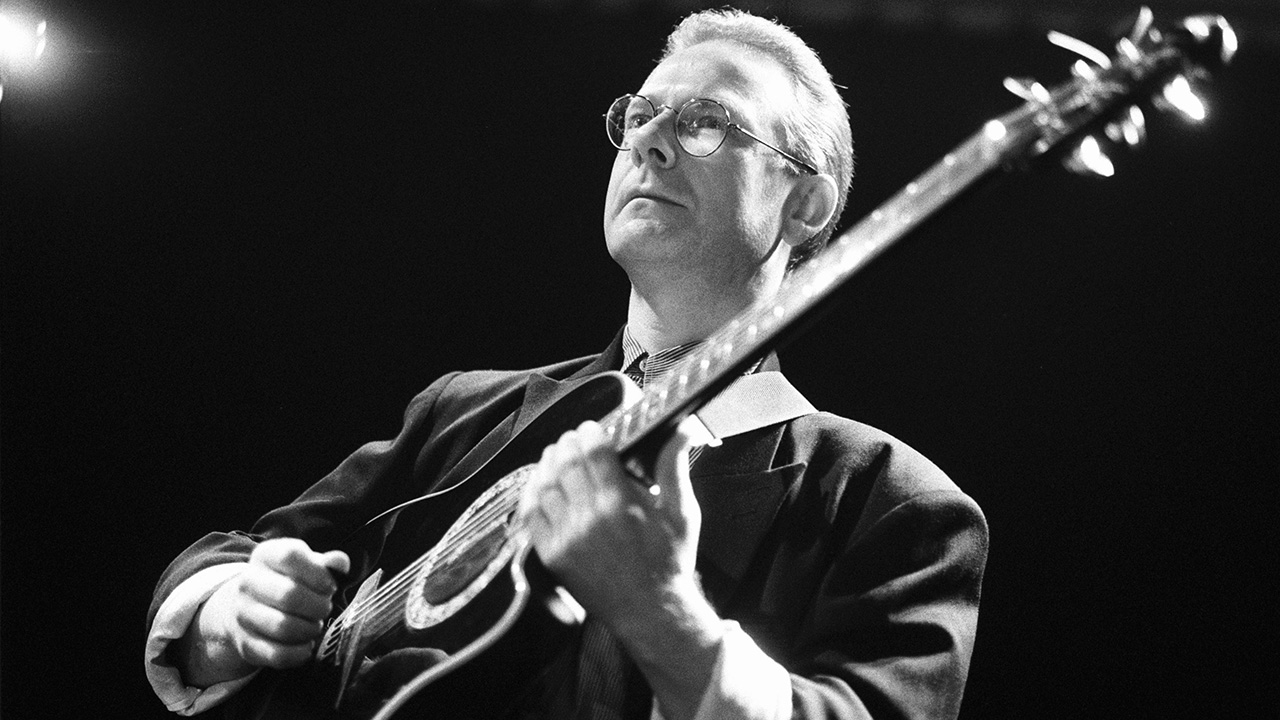
In 2012, as an introduction to an in-depth feature about King Crimson, Robert Fripp offered an equally in-depth way for Prog readers to think about the band’s successes, failures, members and function.
What is King Crimson? Here are several approaches:
• The individuals in the group(s). The group(s) of individuals.
• A society in microcosm.
• A business structure.
• A place where the possible and impossible, magical and material, meet.
• A school of practical learning. A musical repertoire.
• A way of doing things.
A real group is singular, and has a distinct identity with a life of its own, apart from its members. The sum of those members is not the group.
A group forms in service of an aim. The aim of Crimson ’69 was to be “the best group in the world.” In popular culture this easily becomes confused with “the most successful group in the world.” At which point the music may get forgotten, even lost.
How may we judge “success?” A creative process provides no guarantees. If it does, the process is not creative. Any process will inevitably go off-course at certain points. Knowing this, we can re-direct the process at those points. Not knowing this, the process will go off-course. Knowing this, the process may go off-course anyway. Then the group breaks up.
If we look at an unfolding process in time, we’ll find “success” with failures and “failure” with successes. In retrospect, an outcome appears inevitable. Nothing in Crimson’s history has been inevitable, other than the manner in which it moves forward. Where King Crimson is now is not the only place Crimson might have arrived. King Crimson is where it is today only because it got there.
The views and commentaries of all the Crims, in respect of the period of their involvement, are as valid as mine. I don’t know any Crim member who looks back on their active service in Crimson with unreserved happiness, but almost all are proud of their work.
Looking back at years of angst and animosity, good cheer and amity, I am struck by the distress that we served on each other. The history – much of it bad, some of it exceptional, most of it educational, some in The Zone – has nothing to do with the music. The music entered our world despite the interaction of these struggling characters, rather than because of it.
King Crimson brought and held us together, for a short but sufficient period, to become Crimson; and succeeded despite our best efforts
Working with others provides mixed joys. Michael Giles observed that there were three factors that kept a group together: music, friendship, and money; and if any two were present and active, the group would keep going. Where there is music, money and friendship, the group is likely to succeed. But if the success reaches a point where a manager and major label get involved, musical and social processes become mediated by commerce, and problems appear.
For me, there are four factors: the lifestyle, people you work with, money, and music. It’s possible to be outstanding and accommodate the first three: a not happy-making way of living, working with people that irritate you, sharing more of the money than professionally conventional. If life is this hard – and it was for me – then the music is our only support.
What are the musical contributions each individual made to Crimson? Each of the members could list the notes, phrases, suggestions, arrangements of suggestions from others, contribution of personal vocabulary, et al. But King Crimson music is not a list of musical bits, not even its complete repertoire. So a more useful approach might be: in everything played/written by Crimson members outside Crimson, how much of King Crimson is present there?
Another version of this is to assume that the work each individual has done outside Crimson is the playing they wanted/preferred to do, for and of themself. Then the distance, between outside work and their work in Crimson, is what comes from King Crimson. Expressed differently: their work in Crimson was like that because King Crimson made it possible.
This is an alternative perspective to analysing the contributions made by the Crims, adding them up to give the total “King Crimson.” This implies that King Crimson played the players.
And King Crimson is not only the music. King Crimson is something apart from all who played in it, and what they played. The spirit of Crimson – the Good Fairy – is elusive, intangible, impossible to pin down and quite recognisable.
Did all of us create King Crimson? In one sense, yes. But more accurately, King Crimson brought and held us together, for a short but sufficient period, to become Crimson; and succeeded despite our best efforts. When I listen to classic Crim, it continues to take my breath away.
Thursday, 1 November, 2012. The Chamber Of Venality, DGM HQ, Wiltshire.







